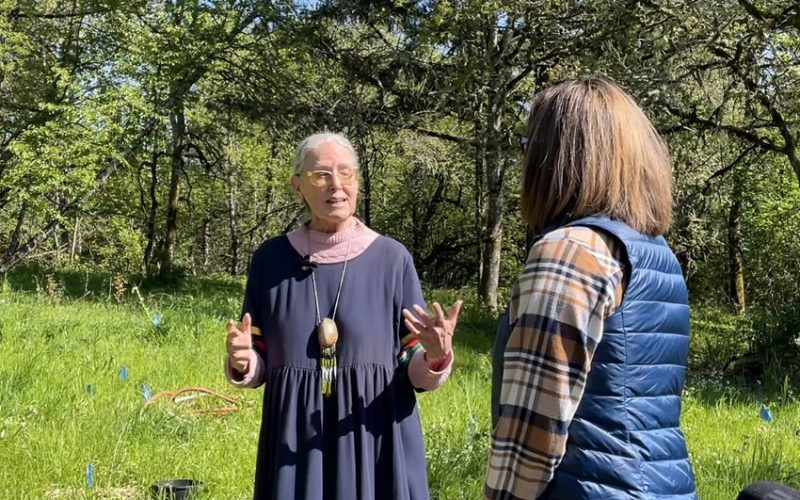Salem, OR — A quiet two-acre farm just south of Salem, home to a rich array of native trees and plants, is at the heart of a federal funding struggle. The farm, which has become a symbol of local Indigenous agricultural practices, has found itself in the middle of a funding tug-of-war, as federal grants have been awarded and then unexpectedly canceled, leaving the future of the project uncertain.
The farm, dedicated to preserving native species and cultivating traditional Indigenous crops, is an important resource for both the environment and the surrounding community. However, like many projects reliant on federal support, it has been hit with the confusion and instability that often comes with shifting government priorities and grant fluctuations. This situation has left those behind the farm in a precarious position, unsure if they would be able to continue their mission.
Salinas, a community advocate and local organizer, has stepped forward to help navigate the murky waters of federal bureaucracy. Known for her dedication to preserving cultural heritage and supporting local agriculture, Salinas has been working tirelessly behind the scenes to restore the necessary funding. With a deep understanding of the importance of the farm’s mission, Salinas has been advocating for the farm’s financial stability and pushing for the reinstatement of the crucial federal funds.
“Funding uncertainty should not threaten the survival of a project that holds so much cultural and environmental value,” Salinas said. “This farm is more than just land; it’s a living testament to Indigenous stewardship of the land. We can’t afford to let it fall by the wayside due to bureaucratic mismanagement.”
The farm, which has been a staple for those advocating for Indigenous agricultural traditions, not only serves as a space for native plant restoration but also provides educational opportunities for local youth and community members. Through workshops and hands-on experience, it teaches sustainable farming methods and shares the knowledge of the traditional agricultural practices that have been passed down through generations.
However, the farm’s fate has been uncertain as federal funding has been delayed, canceled, and reallocated multiple times. This inconsistency has led to frustrations among those who see the farm as an invaluable resource for preserving cultural heritage and biodiversity.
In recent weeks, Salinas has been working closely with federal agencies, local officials, and Indigenous leaders to advocate for the restoration of the necessary funding. Her efforts have not only focused on securing the immediate financial support but also on ensuring that the farm’s funding will be more stable moving forward. By working to establish clearer communication channels with federal agencies, she hopes to prevent future disruptions that could jeopardize the farm’s sustainability.
As of now, the situation remains fluid, with ongoing discussions taking place at both the local and federal levels. The farm’s advocates remain hopeful, thanks to Salinas’ dedication and the growing recognition of the farm’s importance.
For now, the farm continues to flourish, with native plants and trees thriving in the fertile soil. The uncertainty of federal funding looms large, but with efforts from passionate advocates like Salinas, the farm’s mission may just endure, offering a brighter future for Indigenous agriculture and the community at large.











